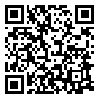

BibTeX | RIS | EndNote | Medlars | ProCite | Reference Manager | RefWorks
Send citation to:
URL: http://imtj.gmu.ac.ir/article-1-2090-en.html
2- Psychology Department, Psychology & Educational Sciences Faculty, AlZahra University, Tehran, Iran
3- Psychology Department, Psychology Faculty, Sciences & Researches Branch, Islamic Azad University, Tehran, Iran
Aims: Emotions and how to deal with them are part of the human personality and affect her health. Ability to evaluate and express our emotions, emotion regulation of ourselves and the others and operation of emotion is called "emotional intelligence". This study aimed to determine the effect of emotional intelligence component training on self-efficacy enhancement and reduction of occupational stress.
Materials & Methods: The semi-experimental research was done on Tehran municipality employees in 2010. Purposeful cluster sampling was done and 30 people who had a high score of occupational stress and low occupational stress were selected and randomly assigned to experimental and control groups. Data collected by the Self-Efficacy Beliefs Questionnaire developed by Scherer and colleagues and the Occupational Stress Inventory developed by Philip L. Rice. Data were analyzed by software SPSS 16 using descriptive statistics and independent T-test and Pearson's correlation coefficient.
Findings: Self-efficacy mean score of experimental group was 64.9±6.2 in post-test which had a significant difference with pre-test score (51.9±8.5) of this group (t=5.1 p=0.05). The mean score of general symptoms of stress of experimental group was 25.7±6.8 in post-test which was significantly different from its pre-test score (32.1±5.6). A negative correlation was observed between self-efficacy increase and occupational stress symptoms reduction (r=-0.223 p=0.033).
Conclusion: Teaching emotional intelligence components can increase the belief of self-efficacy and reduce the syndromes of occupational stress.
Received: 2014/11/15 | Accepted: 2015/02/25 | Published: 2015/02/26
| Rights and permissions | |
 |
This work is licensed under a Creative Commons Attribution-NonCommercial 4.0 International License. |



